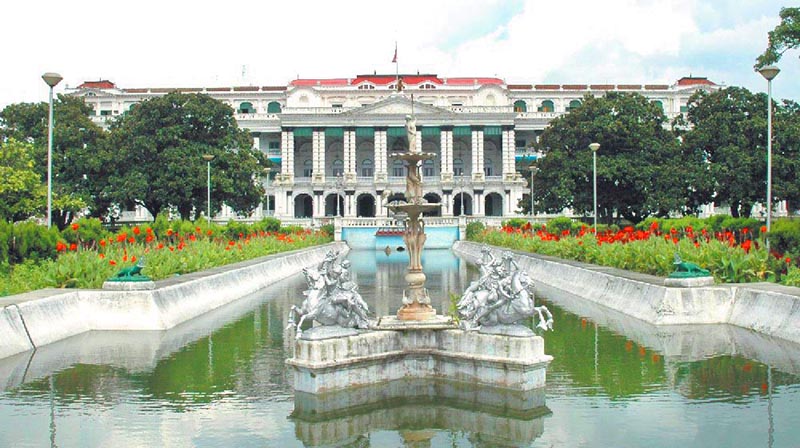Move to empower CDOs draws flak
Kathmandu, February 12
The government’s proposal to put the provincial police in the shadow of chief district officers has drawn flak from lawmakers of both ruling and opposition parties, as they called it a ploy to weaken provincial police and destabilise budding federalism.
The Nepal Police and Provincial Police Bill registered by the government in the Parliament states that provincial and district police officers will have to act as per the instructions of CDOs appointed by the federal government. This provision, according to lawmakers, will make CDOs more powerful than provincial chief ministers, creating friction between the centre and provinces.
“The latest bill goes against the spirit of articles 56, 57 and 232 of the constitution. These articles clearly define the distribution of powers and relationship between the centre, provinces and local levels,” ruling Nepal Communist Party (NCP) lawmaker and former energy minister Janardhan Sharma told the House of Representatives today.
The constitution clearly states that provinces have the authority to set up police administration and maintain peace and order, whereas local levels have the power to appoint and manage town police.
“The central government must understand that provinces also have elected lawmakers and they are equally accountable to the public as lawmakers of the Federal Parliament. The central government should shed the centralist mentality and accommodate itself in the new federal set-up,” said Sharma.
Four other lawmakers of the ruling NCP — Nawaraj Silwal, Rekha Sharma, Ramkumari Jhakri and Anjana Bisanke — echoed Janardhan Sharma and said CDOs could not overshadow provincial governments.
Nepali Congress lawmaker Bharat Kumar Shah, who is also the chairperson of the Public Accounts Committee, said provincial police force was under the control of provincial governments in India and Pakistan.
“The plan to empower CDOs is an attempt to make provincial police force defunct,” said Shah. Other NC lawmakers, Dibya Mani Raj Bhandari, Sanjay Kumar Gautam and Amresh Kumar Singh, also criticised the government for introducing a bill aimed at creating conflict between the centre and provinces and destabilising federalism.
“If this bill is passed and enforced, chief ministers will not have any authority to maintain peace and order in their provinces,” Federal Socialist Forum-Nepal lawmaker Pradip Kumar Yadav said.
These concerns expressed by lawmakers of both ruling and opposition parties put Minister of Home Affairs Ram Bahadur Thapa in a defensive mode.
“The central government is not trying to empower CDOs. It is only trying to turn them into coordinators between provincial and central governments,” Thapa claimed, responding to lawmakers’ concerns, adding, “The government is not trying to undermine federalism or work against the spirit of the constitution.”
“We are concerned about national security. At a time when separatist elements are becoming active we must be extra careful,” Thapa added.
He said if lawmakers were unhappy, they could make changes to the bill. “Any change made to the bill will be welcome,” said Thapa, clarifying that the bill was introduced as per Article 268 of the constitution, which states that matters related to operation, supervision and coordination of Nepal Police and provincial police shall be as provided by the federal law.






